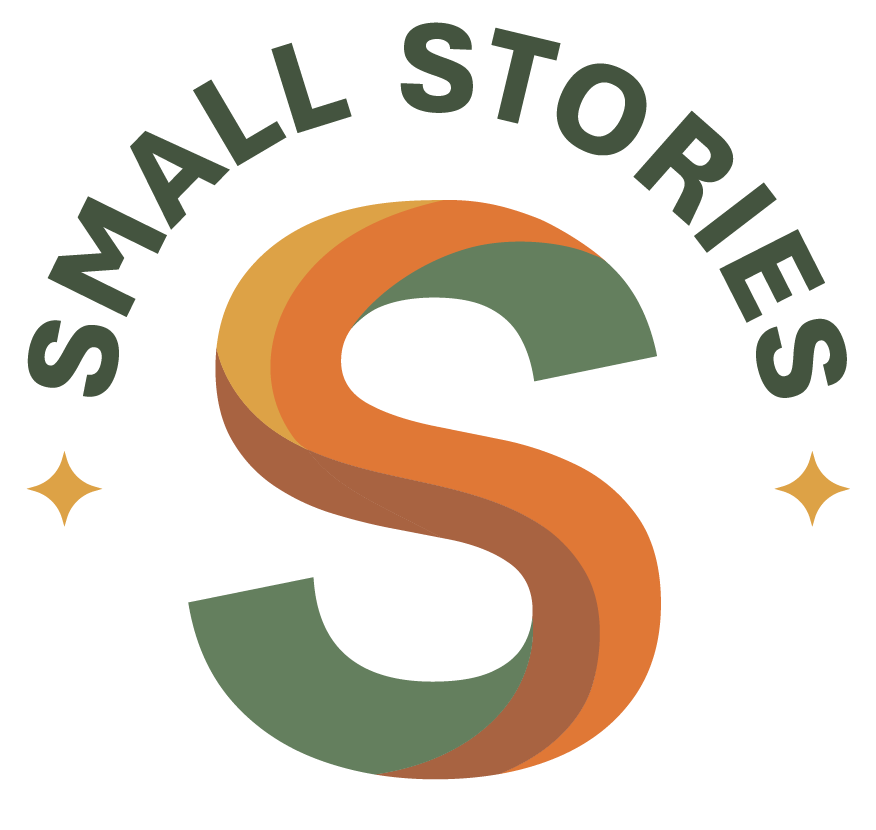SMALL STORIES
Notes for Facilitators/Trainers
The pilot was a 1:1 learning journey matching an experienced story trainer with a storyteller, with content customised to meet the individual needs and goals of the individual storyteller while meeting the learning and development objectives of the program.
The pilot was a creative development model, the intention being that a person with complex needs can complete the cycle many times, increasing complexity of their practice or working on new projects each cycle.
This story training framework is designed to provide structure and guidance but also allow you freedom as an experienced practitioner to utilise your skills and experience and respond to the needs of the storyteller you are working with to provide a customised experience.
The framework has been designed using insights and a co-design process. It is a living framework and can be added to and optimised as new insights emerge. Insights from the pilot will be collated, reviewed and assessed for optimisation of the program.
At the end of this series of interconnected workshops, the storyteller should:
Understand the overall narrative story arc;
Have a clear sense of the beginning, middle and end of their particular story;
Have practiced sharing their story from beginning to end and received guidance on the shape and content of the story in regards to beginning, middle and end elements.
The SMALL STORIES website and manual are designed with an average length of 2-10 minutes per story as a guide. There is no hard and fast rule, the ideal length of the story your storytellers are preparing to tell will vary depending on the setting or purpose of the story.
You have a big responsibility as you guide individual storytellers through a series of 1:1 workshops designed to share knowledge about the structure of stories and apply that knowledge to the creation of a short story. This will be fun, but it also requires care and thoughtfulness. There will be times when you will be talking and sharing inputs, but a lot of the time you will be listening, taking mental and written notes, and observing. The more closely you pay attention and ask questions, the more rewarding this experience will be for both you and your storyteller.
SMALL STORIES
Process/Activities
The content of the learning program component can be summarised into key blocks of activity:
Preparation and relationship building: Prior to the start of the formal workshops, there are between one to three sessions allocated for intentional activities to help you and your storyteller get to know each other and build trust. These sessions feed into the completion of a STORYTELLING GOALS PLAN, the story training sessions then commence guided by this plan and the knowledge you have of the needs and wants of your storyteller. Up to 3 sessions.
Individual sessions: one-on-one training utilising a guiding framework. The story training sessions are organised into a minimum of six workshops and usually at least one follow-up session per storyteller.
Story sharing, Recording & Events: optional additional session/s as required, depending on the storyteller’s goal plan). In the event that your storytellers present their stories at an event, you may be contracted to provide preparation support, invited to serve as a host or MC, ask questions, or just be present to provide support and guidance. Any outcomes, like events or recordings, are not as important as the journey of story-telling and learning about storytelling.
In general, it is not recommended that members of staff or volunteers ‘sit in’ on workshops if they will not be telling a story - with the exception of a support worker or communication partner. Trust is an important part of the process that helps people feel safe enough to share their stories – even if the information they share does not end up in the final story. So, it is not advised that people are present if they are not fully part of the process. The storyteller’s support person or communication partner is an essential part of the process, often participation in this program will be a learning journey for them as well, they may not have had any exposure to or experience with storytelling. An accompanying information pack for support staff and communication partners will be provided to them prior to the storyteller’s commencement of the program as their participation and upskilling as part of the program is essential for the future sustainability of each individual storyteller’s engagement with storytelling.
IMPORTANT: Before you begin, it’s important that you sign a confidentiality agreement with Centre for Stories and a financial service agreement. These documents outline both parties’ responsibilities, expectations of services and payment of fees.
